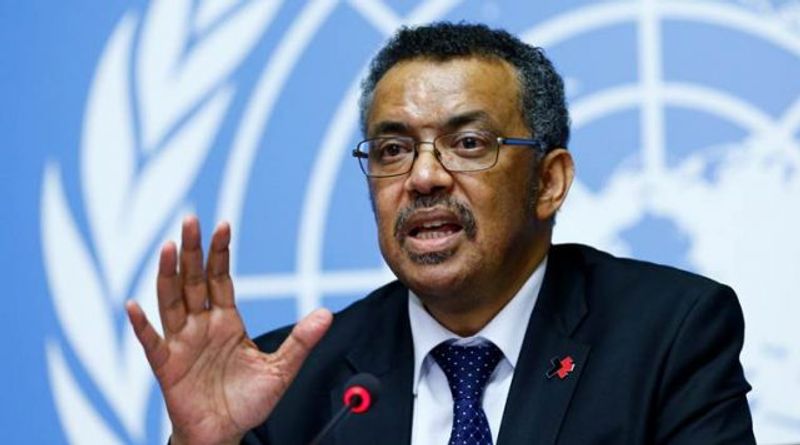

WHO Director General Dr. Tedros Adhanom Ghebreyesus
The World Health Organisation (WHO) says that there are indications that the Coronavirus epidemic can be reversed if all countries act with SPEED, SCALE and CLEAR-MINDED DETERMINATION.
In his daily media briefing remarks made yesterday at the WHO headquarters in Geneva, Switzerland, and made online, the Director General of the UN global health body Dr. Tedros Adhanom Ghebreyesus said that the decline in the number of new cases in China and Korea in recent days is a ray of hope that the epidemic can be pushed back.”
As of March 2, China reported just 146 new cases, a dramatic reduction from the 14,000 new cases that were reported in Hubei Province alone on February 13, 2020.
But the WHO chief says this is not the time to be complacent but rather to activate all the emergence plans to combat the epidemic.
As he has noted before, the disease requires an All-of-government and All-of-Society approach to bring it under control.
“We see encouraging signs from the Republic of Korea. The number of newly-reported cases appears to be declining, and the cases that are being reported are being identified primarily from known clusters.
Although a few countries are reporting large numbers of cases, 115 countries have not reported any cases.
21 countries have reported only one case.
And 5 countries that had reported cases have not reported new cases in the past 14 days.
The experience of these countries and of China continues to demonstrate that this is not a one-way street.
This epidemic can be pushed back, but only with a collective, coordinated and comprehensive approach that engages the entire machinery of government.
We are calling on every country to act with speed, scale and clear-minded determination.
Although we continue to see the majority of cases in a handful of countries, we are deeply concerned about the increasing number of countries reporting cases, especially those with weaker health systems.
However, this epidemic is a threat for every country, rich and poor. As we have said before, even high-income countries should expect surprises. The solution is aggressive preparedness.
We’re concerned that some countries have either not taken this seriously enough, or have decided there’s nothing they can do.
We are concerned that in some countries the level of political commitment and the actions that demonstrate that commitment do not match the level of the threat we all face.
This is not a drill.
This is not the time to give up.
This is not a time for excuses.
This is a time for pulling out all the stops.
Countries have been planning for scenarios like this for decades. Now is the time to act on those plans.
These are plans that start with leadership from the top, coordinating every part of government, not just the health ministry – security, diplomacy, finance, commerce, transport, trade, information and more – the whole government should be involved.
Activate your emergency plans through that whole-government approach.
Educate your public, so that people know what the symptoms are and know how to protect themselves and others.
Increase your testing capacity.
Get your hospitals ready.
Ensure essential supplies are available.
Train your health workers to identify cases, provide careful and compassionate treatment, and protect themselves from infection.
If countries act aggressively to find, isolate and treat cases, and to trace every contact, they can change the trajectory of this epidemic.
If we take the approach that there’s nothing we can do, that will quickly become a self-fulfilling prophecy.
It’s in our hands.
WHO has published step-by-step guidelines for countries to develop their national action plans according to eight key areas, which are supported by detailed technical guidance.
We call on all countries to accelerate those plans, and we stand ready to work with them to do that.
More funding is being made available to support countries that need it, and that have plans in place.
As you know, the World Bank and the International Monetary Fund have both made funds available to stabilize health systems and mitigate the economic consequences of the epidemic, with a special focus on enabling access to critical supplies and equipment.
I had also a very fruitful discussion with the President of the African Development Bank.
This is funding that is available now to countries who need it, in line with WHO’s Strategic Preparedness and Response Plan.
These funds are essential for supporting the response now, but also for long-term preparedness.
Although COVID-19 presents an acute threat now, it is absolutely essential that countries do not lose this opportunity to strengthen their preparedness systems.
We know people are afraid, and that’s normal and appropriate.
That fear can be managed and moderated with accurate information. Today WHO has launched a new social media campaign called Be Ready for COVID-19, which urges people to be safe, smart and informed.
If you feel overwhelmed by fear, reach out to those around you. Find out what your community’s emergency response plans are, how you fit in and how you can help.
There’s still a lot we don’t know, but every day we’re learning more, and we’re working around the clock to fill in the gaps in our knowledge.
Ultimately, how deadly this virus will be depends not only on the virus itself, but on how we respond to it.
This is a serious disease. It is not deadly to most people, but it can kill.
We’re all responsible for reducing our own risk of infection, and if we’re infected, for reducing our risk of infecting others.
There’s something all of us can do to protect vulnerable people in our communities.


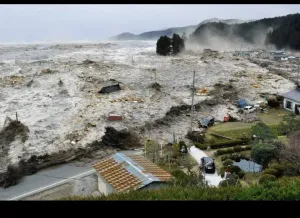

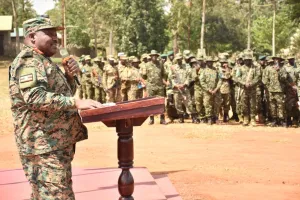
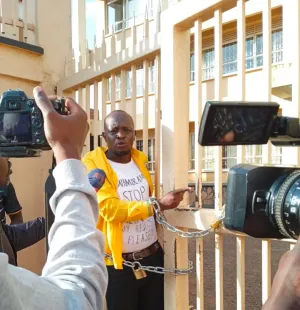





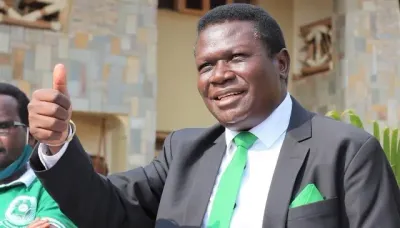
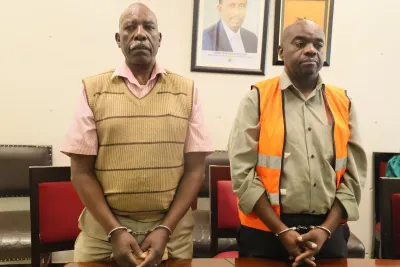
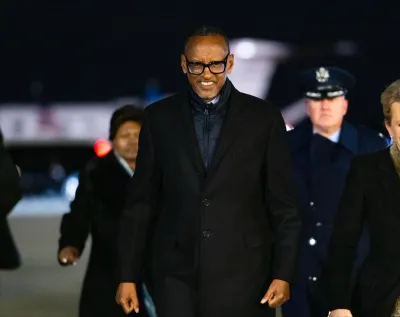
Sunrise Reporter
Leave a Comment
Your email address will not be published.